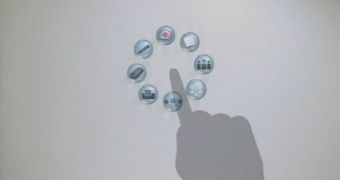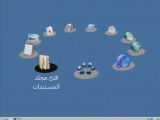One key aspect of computing in particular and technology in general is the end user interaction. So far, when it comes down to computers, the keyboard plus mouse is the traditional and established model of interaction. But without a doubt at this stage in the evolution of computing both the mouse and keyboard are becoming obsolete. By this I do not mean that they have come to the end of their evolution, but that there is a strong shift in the direction of user interfaces, one strongly favoring the natural UI.
Coincidentally or not, Microsoft is not only in the avantgarde of building natural user interfaces with its Surface (surface computing) and Zune 2.0 digital media player, but also Chairman Bill Gates, following his full transition out of his day-to-day role with Microsoft, will focus almost exclusively on building natural UIs. Examples of the work being done over at Redmond can be found in the "Beneath the Surface: The Natural Experience Vision" presentation at MIX08 (via Long Zheng).
"Come hear how the Surface User Experience is focusing on design and user experience as a key driver for creating more natural, intuitive and emotional products. Learn how Surface shifts the approach that has been used for more than thirty years of making users learn the language of computers and products to an entirely new approach where technology, computers and products learn the language of people: touch, voice and gesture," reads the description of the presentation.
Daniel Makoski, Interaction Design Manager Microsoft Surface, has talked about the necessity of simplifying the user interface down to the level where even the computer-illiterate people will be able to interact, at least at a basic level, with technology. The presentation can be accessed here, and you will need Silverlight, or via this link as a .WMV file for Windows Media Player.
"So one of the projects that I was working on was this project of exploring a range of interfaces that would make a computer a lot easier to access. We do a lot of research in India and China, and when people first saw a computer they weren't quite sure what to do. There's clearly issues of literacy, even the literate also have challenges in navigating this whole model which many of us are very familiar with," explained Makoski.

 14 DAY TRIAL //
14 DAY TRIAL // 



